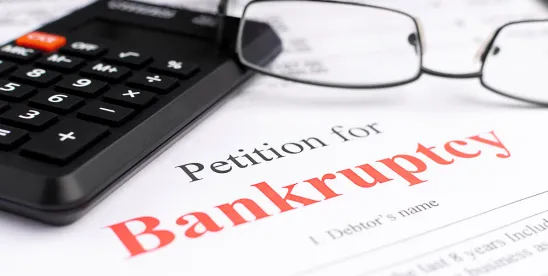The debate rages on. Presently, a debtor can file for bankruptcy relief in any district (1) in which it is incorporated, maintains a residence, has its principal place of business, or principal assets or (2) in which the debtor’s affiliate, general partner, or partnership bankruptcy case is pending. Over the years, certain jurisdictions have become favored for bankruptcy filings because of their perceived “debtor friendly” procedures or legal precedents. These jurisdictions, for the most part, are Delaware, Southern District of Texas (where two judges preside over complex chapter 11 cases), Richmond Division of the Eastern District of Virginia, and the Southern District of New York (sometimes known as “Magnet Districts”).
This means, for example, a West Virginia coal company could incorporate an affiliate in the Southern District of New York and put the affiliate and the West Virginia coal manufacturer into a chapter 11 in the Southern District of New York. See In re Patriot Coal Corp., 482 B.R. 718 (Bankr. S.D.N.Y. 2012) where that exact fact pattern occurred, only for the court to grant the United Mine Workers of America (UMWA) and the U.S. Trustee’s motion to transfer venue, but rather than transferring the case to West Virginia as requested by the UMWA , transferred the case to St. Louis where the debtors were headquartered and where, the court found, there was a convenient accessible transportation hub. The court reached that decision under the ‘interest of justice” provision of section 1412 vs. the “convenience of the parties” grounds primarily because the UMWA only represented approximately 42% of the employees, the unsecured creditors committee opposed the motion and the top 12 unsecured creditors were not located in West Virginia.
Every so often, legislators seek to pass bankruptcy venue reform, hoping to put a stop to what some perceive as forum, or even judge, shopping and the ability to file bankruptcy cases in jurisdictions remote to the debtor’s operations, principal place of business, and many of its constituents. Congress is taking another run at venue reform — on June 28, 2021, the Bankruptcy Venue Reform act of 2021 (H.R. 4193), a bipartisan bill was introduced by Democrat Zoe Lofgren and Republican Ken Buck. The bill seeks to require a debtor to file where their headquarters or principal assets are located. Like prior efforts at venue reform, the present belief is that the bill will meet strong headwinds and may not even get out of committee as the Chair of the Judiciary Committee is Representative Jerrold Nadler from New York (a Magnet District) and ultimately, any bill coming out would cross the President’s desk, the prior Senator from Delaware and a proponent of the present venue statute as Delaware remains the number one bankruptcy venue.
So, with the prospect of a full-blown rewrite of the venue statute with limiting venue alternatives looking doubtful, is a compromise on bankruptcy venue possible? There is some rationale for keeping the “mega” cases within the “Magnet Districts.” The judges are used to managing these large cases, and some districts even have certain judges assigned to complex business reorganizations (see Southern District of Texas). Often, these companies have many locations and employees spread throughout the country, if not the world. And although not optimal, the advent of remote video hearings coming out of the COVID-19 pandemic could make court hearings more accessible to all parties in interest, even those with limited financial resources.
On the other side of the ledger, the smaller business cases tend to have a main hub of operations or manufacturing. The judges in those Districts understand the local economy and the affected community and the debtor’s place in it. The constituents, including employees, vendors and lenders, tend to be local. And their attorneys of choice also tend to be local (in most instances, in order to represent a client in the Magnet Districts, client’s counsel of choice need to find local counsel within the jurisdiction, thereby driving up expense).
It seems to make sense to allow the complex, multi-faceted business that truly has multiple locations and operations to choose a venue based upon the alternatives under the present venue statute. For those complex business cases, the benefits of filing in a Magnet District may outweigh the perceived detriments. But for those businesses with a principle headquarters, location of operations or location of its assets, a limited venue alternative requiring filing in that local district also makes sense. For these cases, compromise legislation would necessarily require eliminating a venue choice based on the state of incorporation or by allowing such filers to utilize the affiliate rules. Writing the specific legislation may be tricky, but if done with enough precision, advocates on both sides of this venue argument could declare victory without annihilating the other side — the very definition of compromise. And more importantly, the venue debate could be put to rest, while the bankruptcy process itself will be fairer and more equitable to all involved.




 />i
/>i

